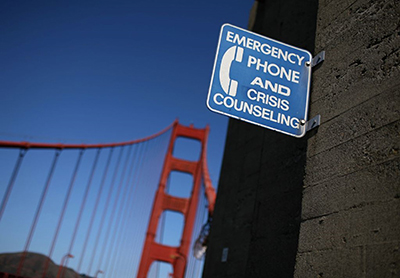
Here’s what you can do the help
A study suggest that COVID-19’s disproportionate impact on the Black community could have contributed to the spike in deaths.
Written by Shannon Dawson
Source: NewsOne
World Suicide Prevention Day is a hard day to commemorate, especially if you have personally lost someone from suicide. Last year during the pandemic, medical officials worried that COVID-19 would have a serious impact on people’s mental health. With months of isolation, millions of deaths and economic hardship resulting in a heartbreaking number of job losses, experts warned of suicide rates skyrocketing.
A recent study conducted by psychiatrist Paul Nestadt proved just that. The company analyzed a group of Maryland residents during the first six months of 2020. Interestingly, at the height of the lockdown during the Spring of 2020, researchers found an “overall decrease in suicide rates compared to the previous three years,” the study notes. However, investigators uncovered some alarming data. While suicides among White Marylanders decreased by 45 percent between early March and May, rates of suicide-related deaths among Black people in the state spiked by 94 percent during the same time period.
Nestadt believes the virus’ disproportional impact on the Black community could have contributed to the massive surge, noting that African American’s were impacted harder during the pandemic–both in terms of fatality and infection rates coupled with historic numbers of unemployment. The August jobs report that was recently published noted that Black workers struggled to get back into the workforce with unemployment rates rising to 8.8 percent last month compared to 8.2 percent in July, CNBC reported.
“Infection and fatality rates are higher among Black people, and we know that there are huge disparities in access to care, including mental health care,” Nestadt told USA News, adding that the data was concerning.
“This is a recipe for bad outcomes. When someone is struck hard by things around the pandemic and they can’t get access to good mental health care, they are in the most danger,” he explained.
“We are all in the same storm, but we are in different boats,” Nestadt continued. “Many people were able to hunker down and be with their family and could afford child care, but some people were just getting by to start with and did not have the reserve or cushion to do this.”
So how can you help someone who might be contemplating suicide?
The American Foundation For Suicide Prevention says you should pay attention to the warning signs of an individual who might be considering causing harm to themselves.
Talk
Take note of the way the individual is speaking. Do they have suicidal ideations? Do they mention they feel trapped or hopeless? These could be potential warning signs.
Behavior
It’s important to pay particular attention to the person’s behaviors that may signal risk, especially if their exhibiting odd behavior related to a painful event, loss, or change. This may include: Isolating themselves from family and friends, using an excessive amount of drugs or alcohol, or sleeping too much.
Mood
People who are considering suicide often display a variety of different moods including anxiety, depression irritability, and loss of interest.
Simply Reach Out
It may seem small but simply reaching out to your loved one who might be battling with suicide could save their life.
“Even if you can’t find the exact words [to say], the aspect that somebody cares makes a big difference,” psychologist DeQuincy Lezine told NPR during an interview.
Questions like “Are you doing OK?” and statements like “If you need anything, let me know” are simple supportive gestures that can have a big impact on someone, Lezine explained.
Ask About Suicide
“Most people are afraid to ask about suicide because they [think they] don’t want to put the thought in their head. But there’s no research to support that,” Doreen Marshall, the vice president of programs at the American Foundation for Suicide Prevention added to NPR.
One can ask a direct question like, “Have you ever had thoughts of suicide?” says Marshall.
Or try asking more general questions like, “What do you think of people who kill themselves?” This could potentially open up a deeper conversation regarding the issue.
Help Create A Saftey Plan
Help your loved one develop a safety plan when they are experiencing a suicide crisis. The American Foundation for Suicide Prevention offers a template that can help you get started. The plan includes making a list of triggers and warning signs the person might experience when suicidal thoughts develop. The list could also include people they feel comfortable being around during those challenging moments or activities they might enjoy doing that could help in easing their emotions.
Resources
Here is a list of helpful links that could further aid in helping your loved ones.


Be the first to comment